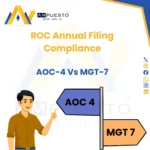Introduction
On July 11, 2024, the Central Board of Indirect Taxes and Customs (CBIC) issued Circular No. 225/19/2024-GST, addressing various issues concerning the taxability and valuation of corporate guarantees under the GST framework. This article delves into the key clarifications provided in the circular, highlighting their implications for businesses involved in providing corporate guarantees.
Background
Corporate guarantees are often issued by a company on behalf of a related party to secure loans from banking institutions. The GST implications of such guarantees have been a subject of debate, necessitating clear guidelines. This circular builds on previous notifications and circulars, including Notification No. 52/2023-Central Tax and Circular No. 204/16/2023-GST.
Key Clarifications
1. Applicability of Rule 28(2) of CGST Rules:
The circular clarifies that the supply of services of providing corporate guarantees was taxable even before the insertion of sub-rule (2) in Rule 28 of the CGST Rules. The new rule, effective from October 26, 2023, merely provides a specific valuation method for such services.
For guarantees issued or renewed before October 26, 2023, valuation is to be done according to the rules in effect at that time. For guarantees issued or renewed on or after this date, the valuation must follow Rule 28(2).
2. Valuation Based on Guaranteed Amount:
The valuation of corporate guarantee services is based on the amount guaranteed, not on the amount of loan disbursed. This ensures that the service value is independent of the loan’s utilization.
3. Impact of Loan Takeover:
When a loan is taken over by another financial institution, there is no GST impact unless a fresh corporate guarantee is issued or an existing one is renewed.
4. Multiple Co-Guarantors:
When multiple entities provide a corporate guarantee, GST is payable by each co-guarantor proportionately. The total consideration should be compared to 1% of the guaranteed amount, and GST is payable on the higher value.
5. Intra-Group Guarantees and Reverse Charge Mechanism:
For domestic intra-group guarantees, GST is paid under the forward charge mechanism by the service provider. For foreign entities providing guarantees to related entities in India, GST is payable under the reverse charge mechanism by the recipient.
6. Payment Frequency and Tenure:
The GST liability on corporate guarantees is calculated annually at 1% of the guaranteed amount or the actual consideration, whichever is higher. For guarantees with a fixed term, GST is payable on the cumulative value for the entire period at the time of issuance.
7. Proviso for Deemed Open Market Value:
The second proviso of Rule 28(2) will be similar to that provided in the second proviso to sub-rule (1) of Rule 28 of CGST Rules. This proviso allows the declared invoice value to be deemed as the open market value when full input tax credit (ITC) is available to the service recipient.
8. Export of Corporate Guarantee Services:
The provisions of Rule 28(2) do not apply to the export of corporate guarantee services. Therefore, guarantees issued to related persons outside India are not subjected to this rule.
Conclusion:
The recent clarifications by CBIC provide much-needed clarity on the taxability and valuation of corporate guarantee services under GST. Businesses must align their practices with these guidelines to ensure compliance and optimize their GST obligations. These measures aim to standardize the approach across various entities, fostering a more predictable and transparent tax environment.
This article provides a comprehensive overview of the recent GST circular on corporate guarantees. For further details, you can refer to the full text of Circular No. 225/19/2024-GST available on the CBIC website.
Disclaimer: The views expressed in this article are personal and for informational purposes only. For specific advice, please consult a professional.









